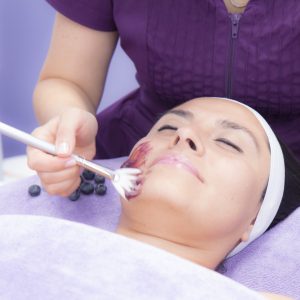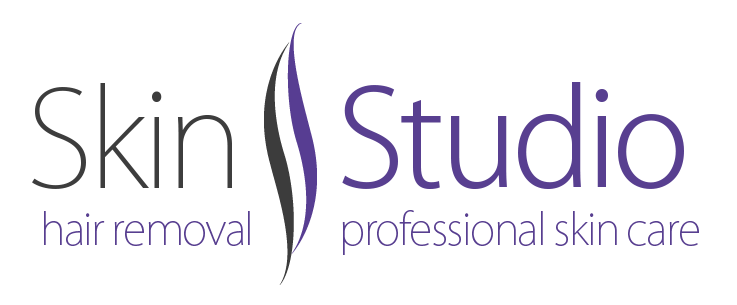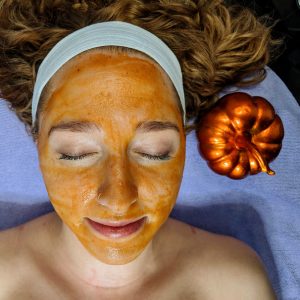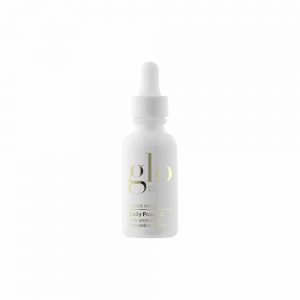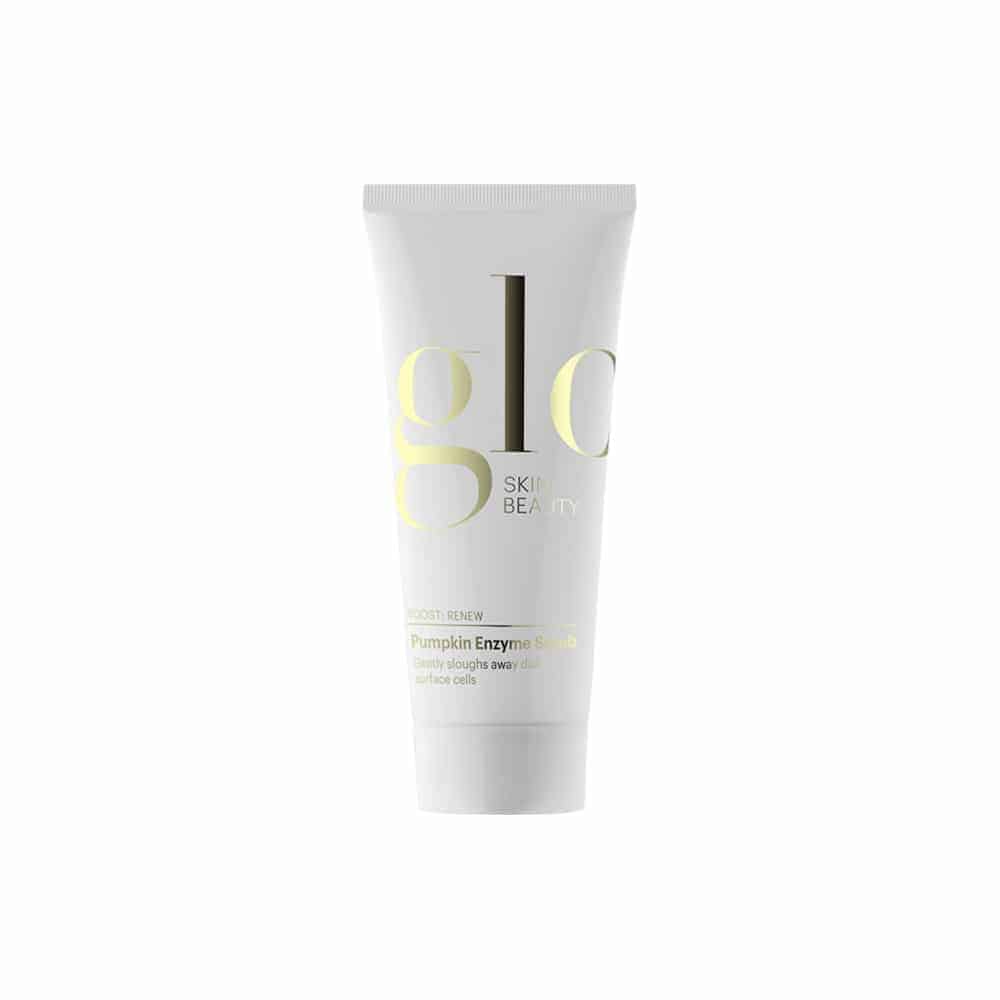Acne: More Than Skin Deep
Anne Lemons
www.annelemonswellness.com
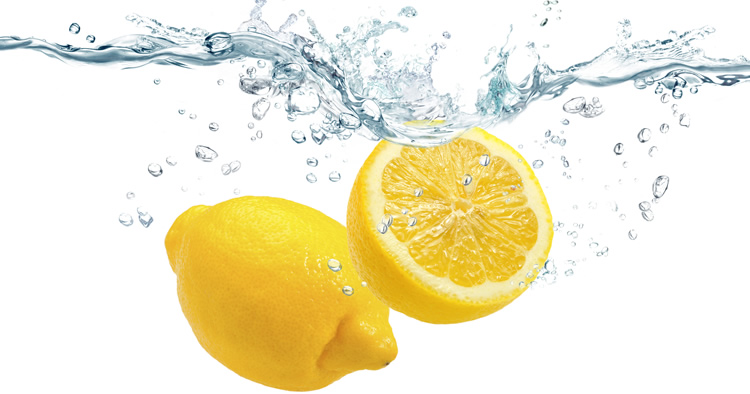
Anytime I hear people say that they are using birth control pills, antibiotics, or medications such as Accutane to control acne, it causes me concern. The customary treatment for acne is to apply a topical product and/or use an oral medication, but is this the best solution? A better approach that addresses the root cause without the side effects of medications may be worth exploring. This article will discuss some of the lesser known causes of acne and better, safer treatments that consider the root cause; in addition, we’ll look at some complementary therapies. The process of acne development includes heightened levels of inflammation, increased sebum (oil) production, colonization on the skin by Propionibacterium acnes (P. acne), and abnormal keratinization (buildup of skin cells). (1) These issues can lead to inflammatory acne (cysts, papules, nodules, and pustules) and the presence of comedones (white heads or black heads), which can get infected and have encouraged a widespread use of antibiotics, both orally and topically, to treat them. In addition, physicians may prescribe drugs such as Accutane (Isotretinion), which address excess oil from the sebaceous glands. Drugs like Accutane, however, can have serious side effects such as birth defects and liver or DNA damage. (15, 16, 17)
Causes of Acne
So, what causes acne to happen in the first place?
The more important, deeper issues may be related
to problems with diet, inflammation, hormone imbalance,
digestion, gut bacteria, and stress.
Acne can be caused any of the following:
Diet

It is often said that diet has no effect on skin conditions or acne, but more recent studies have found that this is simply not the case. A cross sectional study comparing diets between adults with and without moderate/severe acne found that participants with acne were consuming a diet with a greater amount of carbohydrates and higher glycemic (sugar) load and that they had greater insulin resistance. (2) There are some studies that link dairy consumption with acne, as dairy contains anabolic steroids that promote the increased production of androgens (male hormones) and the subsequent development of acne. (2, 3) A Western diet, in general, which often consists of a high calorie intake, high glycemic load, high fat and meat intake, and significant consumption of dairy proteins, increases androgen hormone secretion and over stimulates sebaceous glands. (5) In addition, for cases of inflammatory acne, high levels of Omega 6’s have been associated with an increase in acne in contrast to Omega 3’s, which decrease inflammation. (6)
Hormonal Imbalance
Hormone imbalance appears to be a factor in acne. In a study that followed 120 women with acne for 12 months on a birth control pill, which contains chemical hormones, it was found that acne was significantly reduced in 94% of the women. (8) Birth control pills help regulate female hormones, an indicator that addressing the cause of the hormone imbalance would be a better way to control acne—without all the side effects of a birth control pill. There are many risks and side effects associated with the use of the birth control pill, such as Melasma (7), a skin disorder causing skin hyper pigmentation, blood clots and stroke (18), and the possible risk of breast cancer. (4) More information on birth control risks and side effects for a future blog.
Digestion, Gut & Skin Bacteria
We eliminate toxins in the body from the skin, digestive, and urinary systems by stool, urine, and sweat. If the digestive system isn’t running smoothly, then toxins may exit by an alternative route, such as the skin. A study done on 13,000 adolescents with acne found an increased prevalence of halitosis (bad breath), GERD (heartburn), bloating, and constipation in the participants. (9) Systemic and topical antibiotics have long played a central role in acne therapy. (1) Antibiotic use has been linked to rising rates of antimicrobial resistance, disruption of the gut micro-biome leading to overgrowth of harmful bacteria and development of allergies. (12) The use of probiotics may be beneficial in treating acne—in a study using probiotics for the gut, marked improvement in acne was shown. (10) Long-term use of antibiotics can also disrupt the delicate balance of bacteria on and below the skin surface. In a review of the literature about the gut-brain- skin connection in acne, it was surmised that there is enough evidence to suggest that the gut microbes and the integrity of the gut lining are contributing factors in the acne development process. (11)
Stress & Sleep
Lifestyle factors such as stress and sleep may also play a role in acne development. A cross-sectional study of 144 sixth-year female medical students showed that stress severity strongly correlated with an increase in acne severity. (13) In addition, there is growing research to connect lack of sleep with acne. (14) Sleep has an impact on hormone and immune regulation so getting your Zzzz’s is an important factor in keeping hormones balanced and your immune system working strong to control acne.
Key Approaches to Preventing & Treating Acne
As we’ve seen, many factors can affect the development of acne,
so here are some key things you can do to help prevent or treat it:
• Eat a low-glycemic diet – Fruits (berries are best) and vegetables (especially leafy greens), clean proteins like organic, pasture raised meats, poultry and eggs, and wild fish
• Healthy fats- eliminate trans fats and reduce Omega 6 fats (seed and vegetable oils like soybean and canola) and eat plenty of Omega 3 rich fats like wild caught salmon and ground flax seed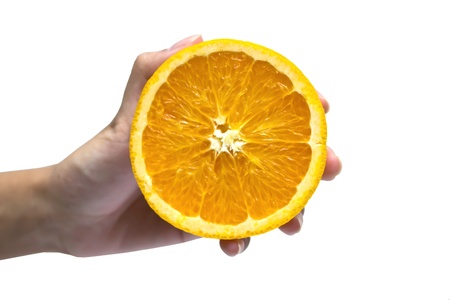
• Eat zinc-rich foods – Oysters, lamb, chicken, ginger, pecans, and pumpkin seeds
• Eat high fiber foods – Vegetables, fruits, nuts, and seeds that help support the good bacteria in your gut and encourage elimination of toxins
• Drink plenty of clean water throughout the day, ideally half your body weight in ounces to help flush toxins out
• Eat vitamin A rich foods – Spinach, carrots, yams, eggs, ghee, fish
• Take probiotics – They balance gut bacteria, which has an effect on the skin
• Address stress management – Meditation, Heart Math, yoga, acupuncture and massage can all help to reduce stress
• Sleep – Get good quality sleep, preferably between the hours of 10 P.M. and 6 A.M., when your body is in sync with its circadian rhythm and does the most repair work.
Avoid these foods:
• Sugar – It feeds yeast and candida, which creates inflammation and imbalance in the gut and shows up on the skin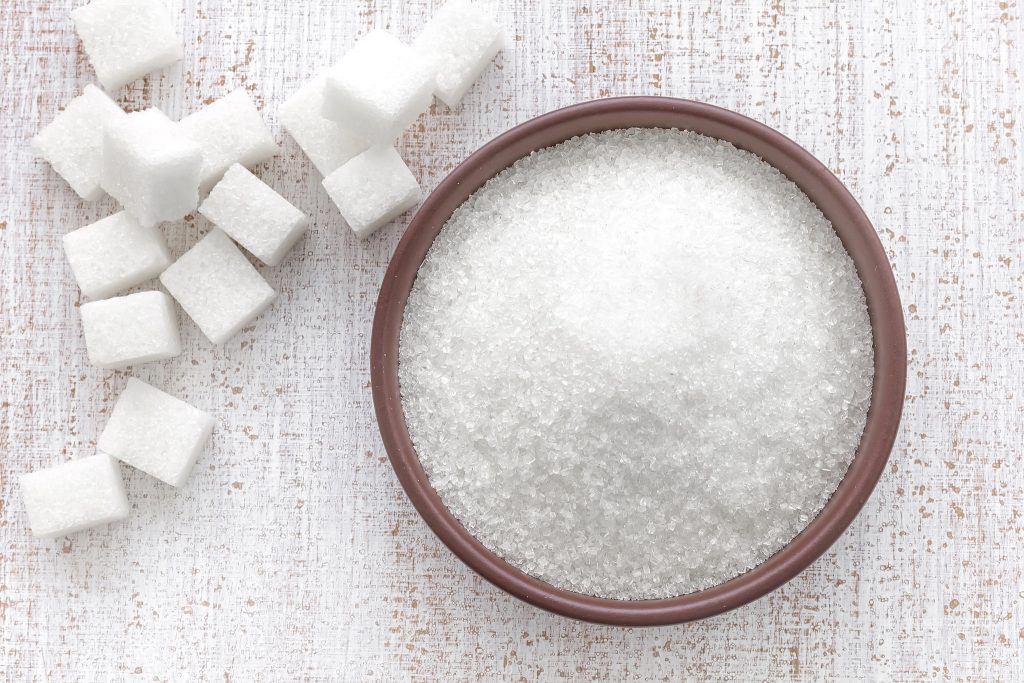
• Gluten and wheat – Causes inflammation in the gut, which shows up on the skin
• Dairy – Promotes androgen production and acne
• Processed and refined foods – Breads, cookies, cakes, and crackers that break down into sugar and may contain gluten
• Hydrogenated oils – Found in fried or processed foods and can cause inflammation
Additional complimentary therapies
While working on the root cause of acne, there are also several wonderful physical approaches to treating acne. These can be especially useful for patients with moderate to severe acne. Two of these treatments are phototherapy and chemical peels. It’s best to work with a dermatologist or an aesthetician who can address your concerns and customize a facial for you using professional strength enzymes, exfoliators, corrective peels, serums, and masks along with LED light therapy. LED light helps stimulate collagen and elastin production (great for anti-aging too), kill bacteria, and heal acne. Regular facials can keep your skin looking its best while you work at a deeper level. In conclusion, instead of taking medications that have associated risks and side effects, it may be safer and more effective to approach acne from its root cause while incorporating some physical therapies. In addition to the dietary and lifestyle changes suggested above, it may also be helpful to work with a functional medicine or functional nutrition practitioner to help you balance your hormones and blood sugar levels as well as improve your gut micro-biome, sleep quality, and stress levels. Finally, working on digestion and the integrity of the gut lining, and utilizing healing foods, probiotics, and supplements may all help substantially to bring acne under control and give you the clearer skin you are seeking.
1. Canavan, T. N. et al. (2016) Optimizing Non-Antibiotic Treatments for Patients with Acne: A Review. Dermatologic Therapy. Dec; 6(4): 555–578.
Published online 2016 Aug 19. doi: 10.1007/s13555-016-0138-1
2. Burris, J et al. (2017) Differences in Dietary Glycemic Load and Hormones in New York City Adults with No and Moderate/Severe Acne. Journal of the Academy of Nutrition and Dietetics. Sep;117(9):1375-1383. doi: 10.1016/j.jand.2017.03.024. Epub 2017 Jun 9.
3. Danby, F.W. (2010). Nutrition and acne. Clinics in Dermatology. 28(6), 598-604. doi: 10.1016/j.clindermatol.2010.03.017
4. Morch, LS et al. (2017) Contemporary Hormonal Contraception and the Risk of Breast Cancer. The New England Journal of Medicine. Dec 7;377(23):2228- 2239. doi: 10.1056/NEJMoa1700732
5. Melnik, BC, (2012) Dietary intervention in acne attenuation of increased mTORC1 signaling promoted by Western diet. Dermato-Endocrinology. Jan 1; 4(1): 20–32. doi: 10.4161/derm.19828
6. Ozdarska K et al. (2017) Diet in pathogenesis of acne vulgaris. Polski Merkuriusz Lekarski. Oct 23;43(256):186-189
7. Kang, H. Y., & Ortonne, J. P. (2010) What should be considered in treatment of melasma. Annals of Dermatology. 22(4), 373-378
8. Palacio, C et al. (2017). Clinical behavior of a cohort of adult women with facial acne treated with combined oral contraceptive: ethinylestradiol 20 μg/dienogest 2 mg. Journal of Women’s Health. Nov 16;9:835-842. doi: 10.2147/IJWH.S139289. eCollection
9. Zhang H et al. (2008) Risk factors for sebaceous gland diseases and their relationship to gastrointestinal dysfunction in Han adolescents. Journal of
Dermatology. 35:555‐ 6110. Fabbrocini G et al.(2016) Supplementation with Lactobacillus rhamnosus SP1 normalises skin expression of genes implicated in insulin signalling and improves adult acne. Beneficial Microbes. 30;625‐630
11. Bowe, W. P. et al. (2011) Acne vulgaris, probiotics and the gut-brain-skin axis – back to the future? Gut Pathology. 3: 1.Published online 2011 Jan 31. doi: 10.1186/1757-4749-3-1
12. Fiore, D.C. et al. (2017) Antibiotic overprescribing: Still a major concern. Journal of Family Practice. Dec;66(12):730-736.
13. Zari, S. et al. (2017) The association between stress and acne among female medical students in Jeddah, Saudi Arabia. Clinical Cosmetic and Investigational Dermatology. Dec 5;10:503-506. doi: 10.2147/CCID.S148499. eCollection 2017.
14 Albuquerque, R.G. et al. (2014) Could adult female acne be associated with modern life? Archives of Dermatological Research. Oct;306(8):683-8. doi: 10.1007/s00403-014-1482-6. Epub 2014 Jun 21.
15. Mondal D. et al. (2017) Retinoic Acid Embryopathy. International Journal of Applied Basic Medical Research.Oct-Dec;7(4):264-265. doi: 10.4103/ijabmr.IJABMR_469_16. 16. Georgala S. et al. (2005) Isotretinoin therapy induces DNA oxidative damage. Clinical Chemical Laboratory Medicine.;43(11):1178-82.
17. Kapp P. et al. (2004) Ultrastructural findings in the liver due to long-term retinol (isotretinoin) treatment. Significance of the perisinusoidal (Ito) cells. Orvosi Hetilap. Jan 25;145(4):173-9.
18. Dulicek P. et al. (2017) Analysis of Risk Factors of Stroke and Venous Thromboembolism in Females With Oral Contraceptives Use Clin Appl Thromb Hemost. Jan 1:1076029617727857. doi: 10.1177/1076029617727857.
Want to know more?
Contact Anne Lemons
www.annelemonswellness.com
Skin Studio is conveniently located in Brighton, MA
Surrounding area to Boston, Allston, West Roxbury, Somerville, Jamaica Plain, Belmont, Watertown, Newton,
Chestnut Hill, Brookline, Cambridge, Natick, Wellesley, Weston, Wayland, Waltham.
Check us out at www.SkinStudioBoston.com
697 Cambridge St. Suite 206
Brighton, MA
